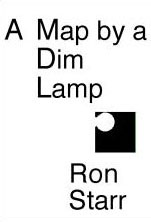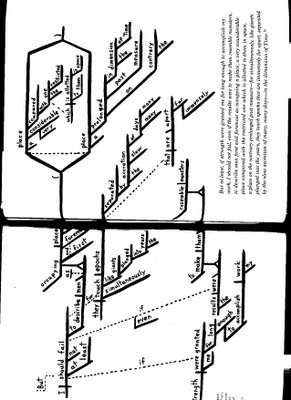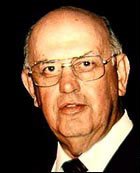
Sunday, December 31, 2006
Saturday, December 30, 2006
Wednesday, December 27, 2006

I've been reading Ron Starr's A Map by a Dim Lamp, from Ravenna Press (the same press that published Rebecca Loudon's stunning Radish King and John Burgess' edgy Punk Poems, among others). This delightful first book draws upon Oulipian constraints and procedures to produce some very original and thoughtful poetry.
One of my favorites so far: "Creation Myths of the Latter Urbanites" which takes Genesis as the given text and uses scrambling and initial letters to create three versions of a new text:
II.
The Genesis of Lawns
In the beginning green grass created happiness and envy. The expressways were without Fords and Volvos, and dusk was upon the fences of the domiciles . . . (pg.10)
I also enjoyed the language patterning of "I Am a Dark Roof. You are a Light Floor," and the keen humor of "What Mr. Angstrom Remembers," with its prose stanzas of deadpan non sequiturs, such as: "Mr. Angsrom remembers the subjunctive. Always." and "Mr. Angstrom remembers to calmly ignore infinitives and other splits of no consequence." Especially as this last comes after the "divorce" poems "Verdict Ho, or Ditch Eve" (the title made from anagrams of the phrase The Divorce, and the poem made using only the letters from the same phrase) and "from divortere . . . to turn aside, go different ways." Revealing, perhaps, a personal or emotional subtext that some of the writing may arise from.
Finally, "Issa on the Pequod" which ends the book, is a delightful smashup of Issa's haiku with phrases from Moby Dick:
Don't worry, phantom,
I keep ship
casually.
*
Climb, death,
O Evolution,
but slowly, slowly.
*
Ice imitating the body
is even more wonderful
than the body.
(pg 53)
As Starr says in his introduction: " . . . the whole of language is a series of related games with rules, roles, and turns. The threnodial and the lipogram are games. So are the sonnet and the first person free-verse lyric. Games worth playing."
And games that are highly recommended.
Tuesday, December 26, 2006
 Went to see Dreamgirls on Christmas Day at Pacific Place. The theater was jam-packed for the 2PM show, it was hard to find a good seat. The audience an eclectic mix of gay men, black women, teens, hipsters, and families.
Went to see Dreamgirls on Christmas Day at Pacific Place. The theater was jam-packed for the 2PM show, it was hard to find a good seat. The audience an eclectic mix of gay men, black women, teens, hipsters, and families.After all the hype, I was prepared for a let-down. The story is sort of wooden and predictable (more like something from the Biography channel). But the singing and the songs are wonderful. Eddie Murphy does a great job as James Thunder Early, a James Brown-Little Richard-Rick James-like singer and showman. Jamie Fox plays the Barry Gordy-like Genius-Promoter turned Machiavellian-Mogul mostly as a one-dimensional bad guy. Beyonce is just darn pretty. There are interesting bits about the history of the times: black music becoming mainstream, civil rights riots in the streets, the Vietnam War raging in the background (Murphy's character wants to do a message song about Vietnam, and all the "brothers" dying there, but it gets nixed, because "message doesn't sell, people want songs to make them happy;" a telling comment, perhaps, on our present time, and the Iraq war?).
Jennifer Hudson's performance as Effie ("I don't do backup") is the best thing about the movie. I thought she was perfect for the role, and that she totally nailed her character. In fact, it did not seem like she was playing a character at all, but was channeling something from deep inside, from her own life. I did not fear for the architectural integrity of the building when she hit her notes (as has been written in some reviews). But I definitely had tears in my eyes several times, her songs are just so incredibly moving. Effie's story is universal: it's about staying true to your voice; about the pain of being passed over, being betrayed/wronged; about falling down and coming back stronger. She is not so much a Diva as a Survivor.
Go see it. You'll feel saved.
Sunday, December 24, 2006

I gave in and went to Rite Aid and bought a fake tree. Not bad for metal wire and green paper, eh? Dean was very surprised. We started decorating it after dinner, while listening to our favorite Christmas CDs: Men's Chorus, Carpenters, Streisand, and the fun jazzy Starbuck's mix, to name a few. Dean swoons over Johnny Mathis singing "White Christmas." Go figure.
Happy Holidays to All!

Saturday, December 23, 2006
But I also look forward to having some time to myself, and time where just Dean and I can do something together. High on my list this year: to see "Dreamgirls." Christmas Day afternoon is the best time to go to the movies, because the theaters are mostly empty: no lines, your choice of seats, great parking.
Because we were away most of December, we didn't have a chance to get a tree. It's a little weird, not having one. The living room seems a little empty. We have this box full of ornaments, including a new one from the Hawaii trip, and nowhere to hang them. Dean is away at work today. I may have to surprise him with something before he gets home. Hmmmm . . . .
Thursday, December 21, 2006
A political poem for the Holidays, no?
For some reason this Hayden Carruth poem (see below) makes me think of a line from Carolyn Forche's "The Colonel," where the military man shows her a bag of severed human ears, then threatens her with, "Something for your poetry, no?" It's a long poem, but worth the read.
The Camps
"Yes, art is palliative; but the substance of art is real.
Can you make something from nothing?"
--Ivan Tolkachenko
When the young brown-haired
woman was shot
a drop of blood swayed
briefly
on the end of her nose
and her baby brother for an instant
thought of a lantern.
***
As the kittens were born
the father of the little girl
bashed the head
of each one against a rock.
She watched. This was
in another country. It was
in several other countries.
***
The town is divided between those
who sit in a dark corner of what remains
of their houses
unwilling to see anyone
and those who go out into what remains
of the street
unwilling not to see everyone.
***
A sparrow flew into the high loft
above the people lying on the floor
and fluttered here and there crying
and cheeping as if trying to drink
the light at the crevices but at last
perched on a broken concrete strut
and closed its eyes.
***
The small pile of starved children
resembles the pile of brush
at the edge of a woods
in Alaska. Each will recede
into the earth at about
the same rate as the other.
***
Some always say the cats
or the crows or the ants
will be last,
but some insist
that the tough young women
and men will somehow endure,
will somehow prevail.
***
After they arrived
they spoke inventively in their language for a long time,
weeks and weeks,
contriving new snappy names for hunger,
for God and Satan,
for the machine,
until the subject itself faltered, and they were silent.
***
For a second after the
sweep of bullets
he looked at himself cut in half.
***
Who is it that stalks the camp?
Not the commandant, he has more sense.
Not the garbage-picker, there is no garbage.
Not that dying baobab tree over there.
Not the dew, there is no dew.
Not even the memory of the dew.
Yet we who are women bury our heads
in our hair and are still.
We who are children sprawl on the earth.
We who are men fold our hands and fall back
with our eyes wide.
Nobody knows who it is that stalks the camp.
***
I am dying because I am black, one says.
Or because I am poor.
Or because I speak bad Spanish or Arabic.
Or because they found me in the Third Street Bar.
Or because my husband ran away.
You see, we are of the world in spite of everything
and we cling to the world's reasons.
***
A little way apart from the long trudging
line of prisoners, a woman lay down
in the snow and gave birth. She was a sad
good-looking blonde. But I am not a woman,
she says. I cannot be, I refuse. Who is this dead
woman lying in the snow? No, I am a coyote.
And at once all the prisoners cried out softly
the coyote's song, which fills the gray air
from horizon to horizon and settles
upon the world. The newborn
coyote pup scampers away over the snow,
across the plain, into the forest.
***
Most of the starving children die peacefully
in their weakness, lying passive and still.
They themselves are as unaware of their
passing away as everyone else. But a few
haggard boys and girls at the last moment
twitch and open their eyes, and a sound
comes from their throats. Their eyes
express if only faintly knowledge
of their private dearness about to be
extinguished. They are struck by their superb
identities. Yes, these are the ones who . . . .
***
The world was never unbeautiful. All its parts,
marsh and savannah, forest and lake, scars
of lava and lightning and erosion, sparkled
in the sun. Now it has this camp and that one
and the thousands of others, camps almost
everywhere. Even the word camp once meant a field.
***
Sometimes children
become playthings.
A bit of their
intestines is pulled
out and handed
to them to see what
they will do with it.
***
When an artillery shell falls
in a particular neighborhood, what follows
is an immediate exodus of body parts and other furniture,
and then the slower exodus. Usually
old people and children, but others too,
maimed and ill, mothers and cousins,
friends and strangers-an unlikely company-walking
in file, weak and unsteady, harried sometimes
by armed guards or sometimes not,
walking, walking, shuffling
through alleys, plazas, across bridges, out
along dusty roads, across the fields,
into the hills and forests.
***
Following at a distance or waiting
in the shadows are wild dogs. Scream
if you can. Beg to be shot.
***
And some are left behind, always in every village,
undiscovered, like this woman of forty
whose origin is doubtful. Is she black, white,
brown, yellow, pink? She is speckled.
Once she was plump and now her skin
sags around her like folds of dirty woolen
though she is nearly naked, and her wrinkled
dugs fall sideways where she is lying, her leg is
gangrenous, already part of the shinbone is showing
unexpectedly white. She is waiting for the sunrise
to bring her a little warmth while she
watches herself become a skeleton.
***
He who is writing these words, an old man
on an undistinguished hillside
in North America
who has been writing for sixty years because this
is his way of being in the world, writing
on scraps of paper with stubby pencils
or on cheap tablets from the drug store, on a battered typewriter
set on an orange crate in a roach-ridden flat
in Chicago or in a small country house
on a computer, writing
all his life long
in the desert, on the mountain, in the forest,
on a beautiful boulder standing in the middle of a mountain brook,
writing,
writing year after year the way robins
build their nests . . .
What if these were his last words?
What if these sentences should be the vision at the end
of a lifetime he could never alter?
***
Sing then of love
in the camps. Somebody
gives somebody else
a swallow of water.
People hold hands,
a woman cuddles her
baby as long as
she can. Men in the face
of the sweeping automatic
rifles against the wall
embrace just before
the blast. And does it
help? Ah how ardent
the hope has been! But
no one knows, the evidence
has vanished.
***
In the simple tableau two brown women
lie with their hands
between each other's legs, worn-out
fingers resting in vulvas, a child
of eight or nine, turned aside, its sex
unknown, fondles itself but the arm fails
and drops down, a wife lies
with her husband's limp penis
against her cheek. Over the camp like descending
twilight the remnants of love
rest on the unmoving forms.
from Scrambled Eggs & Whiskey
Poems, 1991-1995
Wednesday, December 20, 2006
Attention All Po-Bloggers
Deadline: January 15th, 2007
Tuesday, December 19, 2006
Sister Bernadette's Barking Dog

I'm reading a terrific new book, Sister Bernadette's Barking Dog, by Kitty Burns Foley. It's all about the history of sentence diagramming, from its inception in 1877 in a text by Alonzo Reed and Brainerd Kellog, to it's height in grammar schools across the country (where she fell in love with diagramming under the tutelage of Sr. Bernadette). She diagrams famous (and not-so-famous) sentences from the writing of Gertrude Stein, Ernest Hemingway, Marcel Proust, and Joyce Carol Oates, to name a few; and tells delighful literary and historical stories to go along with the diagrams, that are a good read in themselves.
I loved diagramming sentences as a kid. And I agree with her, that diagramming is a lost art — a not-so-useful art, all said and done, but an art nonetheless. She writes about a poster that existed in the 1970's of a 958-word sentence diagram from Proust's Sodome et Gomorrhe. I would love to see that. Below is a scan from the book, as an example of one of the many diagrams she includes, written in heavy black ink, as if copied from a chalkboard. This one, of the last sentence in Proust's A la Recherche, is a marvelous visual poem, don't you think? Come to think of it, I would like to diagram a poem . . . right now . . . hmm . . .

Sunday, December 17, 2006
The Lost Room
Saturday, December 16, 2006
From World Wide Words Dec 16, 06
I would have gone with "decider." I use it all the time with Dean now. For instance, when we are talking about where to go out to eat, I'll say, "Well, I'm the decider and we're going to El Greco." Hehehehe. I so bad.
PS: The power is back after being out for about 36 hours. It's times like these I wish we had a fireplace. Preferably gas-powered. And a gas stove so we could cook.
We received word that our storage locker had some flooding. I need to go assess the damage and move things to a new locker (or the dumpster). Can you imagine soggy sleeping bags and such? Yuck.
Some friends from Vashon who are still out of power are coming over to stay tonight. Looking forward to seeing them. I think I'll make a steak and mushroom risotto.
Friday, December 15, 2006
This made me smile today:
" . . . Edmonds poet Joan Swift provides a transcendent poem called "Light Years" and West Seattle physician/poet Peter Pereira’s anagram wordplays leave one giddy with amazement."
full article here.
I'll Huff and I'll Puff and I'll Bloooooow Your House Down
Thursday, December 14, 2006
Home and dry, so far . . .





We made it home safely, albeit after a bumpy ride over a storm in the Pacific last night. And now the weather report says another storm is going to hit Western Washington tonight, with high winds, rain, possible downed trees, and power outages. This "unsettled" weather is a bit of a shock to the system after Kauai. We had a lovely time, and hope to come back someday. The Grand Hyatt resort was fantastic: huge landscaped grounds, breezy open-air halls and seating areas, multiple levels of pools, nice restaurants. The island was gorgeous: jagged cliffs and mountains, lush green hills, hiking trails, gardens, beaches with big ocean waves, surfer boys (and girls). The people were quite friendly. Apparently Pereira is a very common name on Kauai, from the history of Portuguese immigrants who came to work the sugar cane fields in the old days; and so everybody thought they knew me, or my family and relatives, and treated us as such.
It was a great getaway. I can't believe I have to go back to work tomorrow (thank god it is only a half-day). A few more pics follow (I'll try not to bore you with too many).
Monday, December 11, 2006
Hula Hello
We still have two days to go. It feels like we have been gone a month. Perhaps some pics later?
Wednesday, December 06, 2006
Sunday, December 03, 2006
What I'm Bringing to Read:
Mountains Beyond Mountains, Tracy Kidder
Art of the 20th Century (Taschen)
Splay Anthem, Nathaniel Mackey
Insomnia Diary, Bob Hicok
Resin, Geri Doran
A Form of Optimism, Roy Jacobstein
Dark Alphabets, Jennifer Maier
I can hardly wait to lay out by the pool with some of these . . .
Saturday, December 02, 2006
Friday, December 01, 2006
Thursday, November 30, 2006
With or Without You
From ALP #88
My Father Holds the Door for Yoko Ono
In New York City for a conference
on weed control, leaving the hotel
in a cluster of horticulturalists,
he alone stops, midwestern, crewcut,
narrow blue tie, cufflinks, wingtips,
holds the door for the Asian woman
in a miniskirt and thigh high
white leather boots. She nods
slightly, a sad and beautiful gesture.
Neither smile, as if performing
a timeless ritual, as if anticipating
the loss of a son or a lover.
Years later, Christmas, inexplicably
he dons my mother's auburn wig,
my brother's wire-rimmed glasses,
and strikes a pose clowning
with my second hand acoustic guitar.
He is transformed, a working class hero
and a door whispers shut,
like cherry blossoms falling.
Reprinted from "Folio," Winter, 2004, by permission of the author. Copyright (c) 2004 by Christopher Chambers, who teaches creative writing at Loyola University New Orleans. This weekly column is supported by The Poetry Foundation, The Library of Congress, and the Department of English at the University of Nebraska-Lincoln. This column does not accept unsolicited poetry.
Tuesday, November 28, 2006
Life in a Snowball
Monday, November 27, 2006
The Twelve Steps of Poetry
2.Came to believe that a Poetry Power greater than ourselves could restore us to sanity.
3. Made a decision to turn our will and our lives over to poetry as we understood it.
4. Made a searching and fearless moral inventory of our poems.
5. Admitted to ourselves and to another human being the exact nature of our poetry.
6. Were entirely ready to remove all the shortcomings in our poems.
7. Humbly asked the Poetry Power to help us remove our shortcomings.
8. Made a list of all persons we had harmed with our poems, and became willing to make amends to them all.
9. Wrote new poems for such people wherever possible, except when to do so would injure them or others.
10. Continued to take personal inventory of our poems, and when we were wrong promptly admitted it.
11. Sought through stanza, breath, line, and ear to improve our conscious contact with poetry, praying only for knowledge of Poetry’s will for us, and the poems to carry that out.
12. Having had a poetic awakening as the result of these steps, we tried to carry this message to other poets, and to practice these principles in all our poems.
Amen.
*
Congressional Leaders Press Bush on Iraq
"We have misunderstood, misread, misplanned and mismanaged our honorable intentions in Iraq with an arrogant self-delusion reminiscent of Vietnam," said Chuck Hagel (R-Nebraska), a combat veteran of that war. "Honorable intentions are not policies and plans."
You GO Chucky-girl!
(Though I disagree that Bush's intentions were ever honorable, in any sense of the word.)
*
Sunday, November 26, 2006

My mother, holding her first great-grand-child, Genesis, on Thanksgiving. (Ooops, I think she blinked!).
*
There was about a half an inch of snow/slush on the back deck this morning, when I went out to pick up the Sunday newspaper. I was in my slippers and robe and nearly fell on my ass. It's cold and windy. I'm feeling very hunkered-in down in the basement. With a space heater going and NPR on the radio upstairs. Hawaii is sounding mighty fine right now. Only 3 and half weeks to go until the solstice. I've gotten a lot of writing done this weekend: mostly poem revisons. One of them a long rhyming children's poem, that I imagine being an illustrated book. I have no idea where this poem came from. Or how one even goes about getting such a thing published. But it was really fun to write.
Saturday, November 25, 2006
Ho Ho Ho!

"According to the Alaska Department of Fish and Game, both male and female reindeer grow antlers in the summer each year (the only members of the deer family, Cervidae, to have females do so). Male reindeer drop their antlers at the beginning of winter, usually late November to mid-December. Female reindeer retain their antlers until after they give birth in the spring. Therefore, according to every historical rendition depicting Santa's reindeer, every single one of them, from Rudolph to Blitzen . . . had to be a girl.
We should've known that ONLY WOMEN would be able to drag a fat-assed man in a red velvet suit all around the world in one night and not get lost."
Friday, November 24, 2006
by Joy Harjo
The world begins at a kitchen table. No matter what,
we must eat to live.
The gifts of earth are brought and prepared, set on the
table so it has been since creation, and it will go on.
We chase chickens or dogs away from it. Babies teethe
at the corners. They scrape their knees under it.
It is here that children are given instructions on what
it means to be human. We make men at it,
we make women.
At this table we gossip, recall enemies and the ghosts
of lovers.
Our dreams drink coffee with us as they put their arms
around our children. They laugh with us at our poor
falling-down selves and as we put ourselves back
together once again at the table.
This table has been a house in the rain, an umbrella
in the sun.
Wars have begun and ended at this table. It is a place
to hide in the shadow of terror. A place to celebrate
the terrible victory.
We have given birth on this table, and have prepared
our parents for burial here.
At this table we sing with joy, with sorrow.
We pray of suffering and remorse.
We give thanks.
Perhaps the world will end at the kitchen table,
while we are laughing and crying,
eating of the last sweet bite.
*
from: Reinventing the Enemy's Language.
Edited by Joy Harjo and Gloria Bird.
New York: Norton, 1997.
Thursday, November 23, 2006
Wednesday, November 22, 2006
*
We saw Casino Royale last night. The best parts were hunky Daniel Craig, what eyes, what pecs, what chiseled good looks; the banter between him and Vesper (Eva Green), the love interest; and the divine Judi Dench as "M." Dench is indeed a revelation in the role: powerful, intimidating, yet somehow warm and maternal. I hope to see more of her in a sequel. And did anyone else catch that Bond called her "mum." Is that what "M" stands for? Is there perhaps a hidden plot line that she is his real mother? You know, in a silly, Star Wars-esque, Darth Vader "I am yur father" sort of way?
*
Off work now until Monday. Hope to get some writing done. I have several projects that are in the works, and not sure if any will eventually come together: the Expedition of the Vaccine poem; a longish poem in sections with definitions and prose passages and clinical instructions (for preparing a dead body for viewing); death row and famous last words; and a series of historical poems about famous "bad physicians" (Mengele, for example); and other tidbits. Maybe I'll even send some poems out to magazines (I have *nothing* out anywhere right now; but it feels kind of liberating, so I may not change that).
*
The cat did not give birth to puppies, or cogs, or dats. Full story here.
Monday, November 20, 2006
Feeling vs Seeing
NEAR RUSOMO (Out-Loud Read Time 40 Sec.)
— “A.P. Wire Photo, The New York Times, 12/21/97
People say they have to express their emotions.
I'm sick of that. Photography doesn't teach you
to express your emotions; it teaches you how to see. — Bernice Abbott
They're downstream now,
beyond the falls,
eight or ten, or more,
out of the turbulence.
The Kagera River churns
onward into Tanzania, leaving
them behind in the backwash.
The smooth stone outcropping
of their native land hovers
over them like a mother seal.
They huddle against her
black flanks the way they leaned
into one another last week
in the Church for safety
in numbers. And now
that the machetes have passed,
the torsos are looking down
into the debris-choked shallows
for their missing heads and limbs.
from "Ripe" author's copyright
Sunday, November 19, 2006
Dinette/Borat/Bond
What a odd funny ridiculous sometimes offensive sometimes tedious sometimes laugh-out-loud movie. I have never seen anything quite like it. No group or individual is spared Sacha Cohen's quirky brand of satire. And I nearly died laughing when Borat and his traveling companion got in a naked wrestling fight in their hotel room. OMG. One image in particular is unfortunately seared on my retinas forever. You will just have to see it for yourself.
*
Hope to see the new Bond movie soon. We tried to go Friday night, but it was all sold out already. Several screens each at all three theaters in our part of town. And we are way too old to stay up for an 11:15 pm showing. Even for Daniel Craig.
*
 Last month, carpenter Michael Cresta broke the record for most points in a single play in tournament Scrabble. He played QUIXOTRY across two triple word scores (and using an existing R on the board) for a total of 365 points. His score of 830 points for the game was also a record. Now, just use it in a sentence.
Last month, carpenter Michael Cresta broke the record for most points in a single play in tournament Scrabble. He played QUIXOTRY across two triple word scores (and using an existing R on the board) for a total of 365 points. His score of 830 points for the game was also a record. Now, just use it in a sentence.See the play by play recap of the game here.
*
Question: Is the new version of blogger worth getting? It looks like you have to sign up for a google account, and perhaps read some important fine print before agreeing (for instance, you can't ever go back to the old version). Have others switched over?
Saturday, November 18, 2006
Song of the Andoumboulou: 50 (sorry the formatting is not right)
-ring of the well-
Fray was the name where we came
to next. Might've been a place,
might not've been a place but
we were there, came to it
sooner
than we could see... Come to
so soon, it was a name we stuck
pins in hoping we'd stay. Stray
was all we ended up with. Spar
was another name we heard
it
went by... Rasp we also heard it
was
called... Came to it sooner
than we could see but soon enough
saw we were there. Some who'd
come before us called it Bray...
Sound's own principality it was, a
pocket of air flexed mouthlike,
meaning's mime and regret, a squib of
something said, so intent it
seemed. At our backs a blown
conch,
bamboo flute, trapic remnant,
Lone
Coast reconnoiter come up empty
but for that, a first, forgotten
warble trafficked in again even so,
the
mango seed's reminder sent to what
end we'd eventually see...
We had
Come thru there before we were
told. Others claiming to be us had
come thru... The ubiquitous two lay
bound in cloth come down from on
high,
hoping it so, twist of their raiment
steep
integument, emollient feel for what
might not have been there. Head in the
clouds he'd have said of himself,
she'd
have said elsewhere, his to be above and
below, not know or say, hers to be
alibi, elegy otherwise known...
have said elsernrheren
Above and below, limbo what fabric
intervened. Limbo the bending they moved
in between. Limbo the book of
the
bent knee... Antiphonal thread
attended by thread. Keening string
by thrum, inwardness, netherness...
Violin
strings tied their hair high, limbo
the headrags they wore... The admission
of cloth that it was cover, what
was imminent out of reach, given
what
went for real, unreal,
split,
silhouetted
redress
"Song of the Andoumboulou: 50" from Splay Anthem by Nathaniel Mackey, copyright © 2006 by Nathaniel Mackey
Friday, November 17, 2006
Call for Poems
Please send your best, previously-unpublished poems as Word or RTF attachments, to ppereira55@yahoo.com.
Thursday, November 16, 2006
Nathaniel Mackey
Splay Anthem
New Directions
"He said that he was especially pleased to receive an award whose first recipient was William Carlos Williams, who was an abiding influence." (From NY Sun)
About the Book (from NBA website)
Part antiphonal rant, part rhythmic whisper, Nathaniel Mackey’s new collection takes the reader to uncharted poetic spaces, forming the next installment of two ongoing serial poems Mackey has been writing for over twenty years: Song of the Andoumboulou and “Mu”.
About the Author
Nathaniel Mackey is a poet, literary critic, fiction writer, and journal editor whose eight books of poetry include Four for Trane, Septet for the End of Time, Outlantish, and Song of the Andoumboulou. His 1985 poetry book, Eroding Witness, was selected for publication in the National Poetry Series. He received a Whiting Writers’ Award in 1993 and was elected to the Board of Chancellors of the Academy of American Poets in 2001. He is also the author of an ongoing prose composition of which three volumes have been published and of two volumes of literary criticism, Paracritical Hings (2005) and Discrepant Engagement: Dissonance, Cross-Culturality, and Experimental Writing (1993). He is editor of the literary magazine Hambone and is a Professor of Literature at the University of California, Santa Cruz.
*
I also thought Gluck would win.
This book sounds fascinating, though. And now I'll have to read it.
Wednesday, November 15, 2006
What about the em dash?
One question that came up was the use of the em dash — . I know some manuals of style say no spaces before and after; while other manuals of style say yes to spaces before and after. Some people seem pretty militant about it, while others say "it depends." A little research this morning reveals there is a lot of variation. But it seems using the spaces may be winning out over time, as computer-based type-setting machines (as opposed to old hand-set print) need to "see" the spaces, or they will think the two words and the em dash in between them are all one word, and will not break the phrase over two lines when it runs over the right margin.
How do you vote on the em dash? Do you care? Spaces before and after? Or not?
*
Home sick today. A bad cold. I think I'll curl up on the sofa and finish reading the Alvarez novel.
Sunday, November 12, 2006
Don't Miss This!


Rebecca Loudon, the author of Tarantella and Navigate, Amelia Earhart's
Letters Home, reads from her long awaited new collection of poetry, Radish King.
Monday, November 13, 7 p.m.
Richard Hugo House
1634 11th Ave.
Seattle, WA 98122
206-322-7030 (tel)
Free
This reading is co-sponsored by Richard Hugo House.
Saturday, November 11, 2006
Saving the World?


Book review: Saving the World by Julia Alvarez
by Margot Harrison (03/29/06).
"In 1804, a Spanish army surgeon named Francisco Xavier Balmis set sail across the Atlantic on the ship Maria Pita. With him were 22 male orphans, two of whom carried the precious smallpox vaccine in lesions on their arms. The rest of the boys were to form the human chain of carriers needed, in this pre-refrigeration era, to bring the inoculation against a deadly plague to Puerto Rico, Mexico, South America and even the Philippines and China. At a time when the ravages of smallpox were familiar to all, Balmis could easily be forgiven for believing that he was "saving the world."
Balmis' expedition earned him a place in history. But what of the orphan boys who actually carried the vaccine? And what of the lone woman in the expedition, Isabel the orphanage rectoress? How did it feel to be drawn along by the tidal wave of Balmis' intensely altruistic -- and egotistical -- ambition?
That question is the germ of Saving the World, from the best-selling Middlebury author Julia Alvarez. The complex plot of her fifth novel is almost as ambitious as Balmis' expedition, which actually functions for Alvarez as a story within a story. The novel's framing and dominant narrative, set in present day, allows the author to draw parallels between AIDS and smallpox; between Balmis and modern do-gooders whose motives may be mixed. Confronting a world where "Every good [is] threaded through with, at best, dubious goods," Alvarez asks us, "What does it mean not to lose faith with what is grand?"" Read the rest of the review here.
"The ship reached Puerto Rico in February 1804 with its cargo of vaccine serum preserved between sealed glass plates; also onboard were 21 children from the orphanage at La Coruña who carried the vaccine through arm-to-arm vaccinations performed sequentially during the ship’s journey . . ."
Who were these children? How were they chosen to do this? What was their life like? I think there may be a poem here.
Friday, November 10, 2006
Thursday, November 09, 2006
Tonight at Open Books
RICHARD KENNEY & DAVID BIESPIEL
Richard Kenney reads his work in honor of the publication of Long Journey: Contemporary Northwest Poets (Oregon State University Press), edited by David Biespiel. Perhaps Kenny has a new book forthcoming?? I hope so. It's been a long time since The Invention of the Zero, one of my favorite books.
Open Books
2414 N. 45th St. Seattle, WA 98103
(206) 633-0811
store@openpoetrybooks.com
*
PS: and speaking of new books, I must be on near the same time-line as C Dale, as I also have my third and final page proofs to review this weekend. It's really exciting, and a bit daunting to think the book will be out in a few months. But I love how it is turning out. The last poem, "Nightwalk" falls on page 99. Double nine. Love it.
Wednesday, November 08, 2006
Go Blue!
Bush says he is "disappointed." Hah.
I find it very suspicious that the Montana senate count suddenly bogged down for "un-known circumstances" late in the evening. Very suspicious.
Virginia will go for a recount, but Webb should prevail.
Still, we may not know the final make-up of the Senate for weeks, or more.
Let me hear you say: "Speaker Pelosi."
*
And in the lovely state of Washington:
A referendum to limit lap dances to a distance of four feet was voted down (we like our lap dances just the way they are, thank you).
The race for congressional seat 8 -- between a former cop whose claim-to-fame is getting a single-mom school bus driver fired for flipping off George Bush's motorcade (hell, I would have given her a raise), and a former military brat and ex-Microsoft em[ployee named Darcy (couldn't she just have fixed the voting machines?) -- is too close to call.
Tuesday, November 07, 2006
*
And read this, from a 2004 article in Slate by Eric McHenry, about the overlooked poetry of George Starbuck, the once-upon-a-time drinking buddy of Plath and Sexton. I am definitely being drawn in to Starbuck's work, and will have to get the collected.
"It's not especially surprising that Starbuck is now so overlooked: Critics today tend to view wit as a poor substitute for humor. Starbuck's major poems are all the things major poems should be—subtle, intelligent, moving—but their distinguishing mark is almost always cleverness, and cleverness is not a quality prized in contemporary poets. There's much more room in the canon, at this point, for the breezy humor of Frank O'Hara and Kenneth Koch than for Starbuck's elaborately plotted pranks and rococo word-castles.
The best way to approach Starbuck's work is to first drink three cups of Starbucks' French Roast. His poems demand the same sort of hyperattentiveness to language that produced them; they're packed with allusion, neologism, wordplay, jumps from elevated to demotic diction, and technical pyrotechnics. In "Desperate Measures," the increasing hysteria of the speaker—a scandal-addled Richard Nixon—registers in the slow unraveling of the end rhyme:
Bad enough with pot fiends rioting in the streets.
But blackmail! Trading on another person's dirty secrets.
It's worse than being a classified-documents-leaker, it's
Diabolicaller it's slimier it's sneakier it's
Blackmail! Oh Momma I just don't care anymore.
They can drag our impetuous ardor in all its sordor
Into the glare of the lawcourts and the even horrider
Glint in the eye of the would-be boudoir toreador
The Suck-of-the-Month subscriber the PlayboyPortfolioreader
The plain-brown-wrapper Scenes-from-the-Life-of-Ann-Corioorderer—
This may seem formally extravagant, but it's nothing compared to Starbuck's "A Tapestry for Bayeux," written in dactylic monometer, with a 156-letter rhymed acrostic threaded through it; or his "Elegy in a Country Church Yard," a panoramic concrete poem more than 5 feet wide; or his "Verses To Exhaust My Stock of Four-Letter Words," which includes "zoöoögenous," "bullllamas," "disagreeee" (the counterpart to "disagreeor"), and, for good measure, "archchurchmen"; or his Space-Saver Sonnets, which compress 14 lines of Shakespearean pentameter into 14 syllables of rhymed paraphrase:
My Mistress' Eyes Are Nothing
Yes,
Per-
fes-
ser,
snow
no
doubt
out-
does
her
et-
cet-
er-
as.
This is all great fun, of course, and hard as hell to do. But poetry critics have never embraced the labor theory of value. "
Happy reading . . .
Saturday, November 04, 2006
Chicano Mariposa

Dean and I went to hear Rigoberto read at Elliott Bay tonight. The rain was coming down in sheets, with flood warnings up across the state. Still there was a decent turnout. Rigoberto read three parts from the memoir: a Day of the Dead/Halloween story; a piece about a fateful busride with his father in Mexico, where he had hoped to come out to him; and a recounting of his getting accepted into UC Riverside (the first in his family to go to college) as teenager, and leaving home for good. It was a lovely reading, and Rigoberto is such a pleasant, kind presence. I'm looking forward to reading the rest of the book.

Friday, November 03, 2006
The Women of Kismayo
The breasts of Kismayo assembled
along the mid-day market street.
No airbrushed mangoes, no
black lace, no underwire chemise.
No half-cupped pleasures,
no come-hither nods, no Italian
centerfolds. Simply the women
of the town telling their men
to take action, to do something
equally bold. And the husbands
on their way home, expecting
sweet yams and meat,
moaned and covered their eyes,
screamed like spoiled children
dredged abruptly from sleep—
incredulous that their women
could unbutton such beauty
for other clans, who
(in between splayed
hands) watched quite willingly.
Give us your guns, here is our
cutlery, we are the men!
the women sang to them
an articulation without shame.
And now in the late night hour
when men want nothing but rest,
they fold their broken bodies, still
watched by their wives cool breasts
round, full, commanding as colonels—
two taut nipples targeting each man.
Susan Rich
Cures Include Travel
White Pine Press
Thursday, November 02, 2006
A Gift
*
Went to hear Rigo, Rick, and Oliver read at UW tonight. A special presentation by the Ethnic Studies Department. A good reading. The highlights for me: Rigo's three linked sonnets (which he later jokingly referred to as a "tiara" rather than "crown" of sonnets). Rick's "Magnolia," which was a long run-on sentence; and his poem based on a Yoko Ono art video from the 60's (where her clothes are being cut off her body onstage). Oliver's new poems "About the Strawberry" and "Jose the Liar" ("Pants on Fire!" ~grin~) from the stories of Filipino farm workers. Chatted a bit with some UW MFA and Eng Lit students, as well as Jean9 and Jennifer D. Dark and rainy for the ride home. Fall has really fell, eh?
Wednesday, November 01, 2006
George Starbuck's "Sweet Ladies"
Also in this issue, Mark Doty has a wonderful essay about the writing of his poem "Theory of the Sublime." It's a great look into how his mind works, and how his poems come to be. In the poem he connects two disparate experiences: one, being asked to clap in front of a video camera for a friend's art project; and two, climbing the towers of La Sagrada Familia. He tells of waking up in the night to go write the first drafts of the poem at the computer on the mezzanine level of the Art Nouveau-era gay hotel he is staying at in Barcelona, and it was a secret delight for me to know he must have been staying at Hotel Axel (where Dean and I were last spring) and sitting in the very place, at the same computer and keyboard, where I would write in the night at Axel as well.
There's also an Ira Sadoff essay about Frank O'Hara, and much more, including a long-ass Komunyakaa poem, that I haven't gotten to, yet. Happy reading . . .
Tuesday, October 31, 2006
Real Thing or Urban Myth?
DON'T FLASH HEADLIGHTS AT ANY CAR WITH NO LIGHTS ON!!
Police officers working with the DARE program have issued this Warning:
If you are driving after dark and see and on-coming car with no headlights on, DO NOT FLASH YOUR LIGHTS AT THEM! This is a common Bloods member "initiation game" that goes like this: The new gang member under initiation drives along with no headlights, and the first car to flash their headlights at him is now his "target.".
He is now required to turn around and chase that car, then shoot and kill every individual in th e vehicle in order to complete his initiation requirements. Police Depts across the nation are being warned.
Their intent is to have all the new bloods nationwide drive around on Friday and Saturday nights with their headlights off. In order to be accepted into the gang, they have to shoot and kill all individuals in the first auto that does a courtesy flash to warn them that their lights are off.
Make sure you share this information with all the drivers! in your family! Please forward this message to all your friends and family members to inform them about this initiation ritual.
SR Dispatcher Tracey Sharber
Kentucky State Police
Post 3 Bowling Green
P.O. Box 0068
Bowling Green, KY 42102
Phone: (270) 782-2010
Fax: (502) 564-3507
Another One Bites the Dust
Blue Fifth is Fresh
Contents
Blue Fifth Review, Fall 2006
poets & artists
Tattoo of Love by Ernest Williamson III
Featured Poet: Robert Lietz
I: Kneaded
[ Grenside, Dodge, Piercy, Britt, Sato, Persons,
Ballard, Taylor, White, LeWinter, Diaz ]
II: The Dust of Worry
[ Hudspith, Thompson, Roby, Pereira, Woodcock,
Shockley, Stempleman, Bruno ]
III: Windy Vowels, Consonant Doors
[ Chaffin, Elbe, Williamson, Johnson, Losse,
Hamm, Krok, Potos, Lineberger, Frost ]
IV: To Carry Emptiness
[ Allen, Vidrine, Carrington, Kalbasi, Illich, Petrakis,
Thompson, McGlynn, Engler, Timm, Henning ]
Featured Artist: Leslie Marcus
Sunday, October 29, 2006

Dean and I saw Running With Scissors last night. What a weird and wacky movie! I had not read Augusten Burroughs's over-the-top memoir of the same name, but it didn't matter. Annette Bening is terrific as his narcissitic, therapy-addled, poet-wanna-be mom, who gives Augusten up to her nut-case therapist and his family to adopt and raise as their own. The scenes of her meeting with her poetry group, fantasizing about reading in Carnegie Hall, decopaging her rejections slips from the New Yorker, are hysterically funny. Joseph Fiennes as Augusten's 33 year old gay lover (Augusten is 13-17 years old in the timeline of the movie), with his Village People handlebar moustache, is just a revelation. Jill Clayburgh as the nutty psychiatrist's dogfood-eating wife is the surprise light at the end of the proverbial tunnel.
Sounds like Augusten Burroughs turned out fine in the end, anyway. So is his "traumatic adolescence" all just a wash? Or is it what made him who he is, and he wouldn't change a thing? You can see the poetry of his real life mom, Margaret Robison, here.
The 70's' music soundtrack was a hit with this viewer. The movie had me at "Benny and the Jets."


















